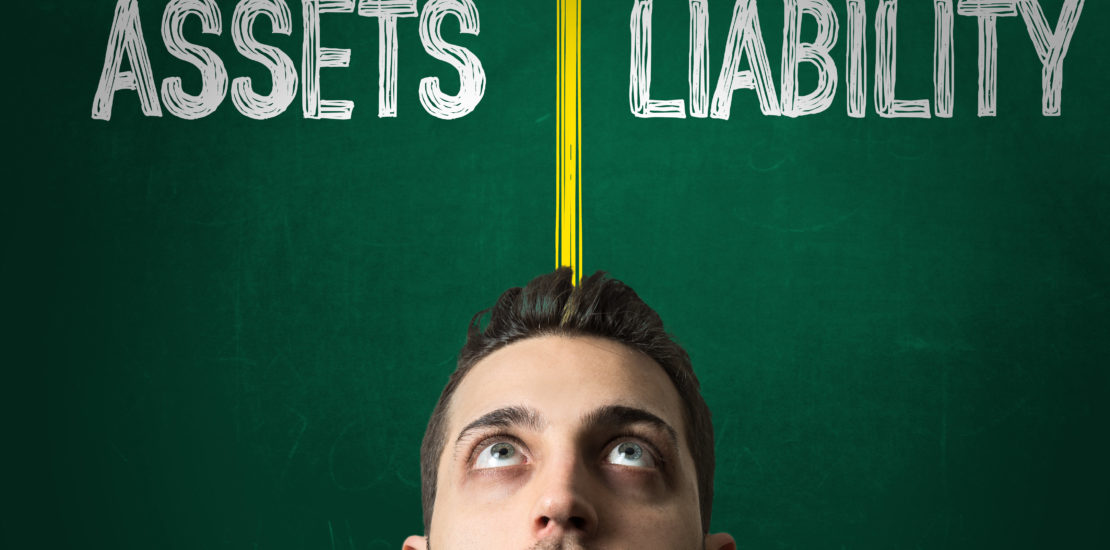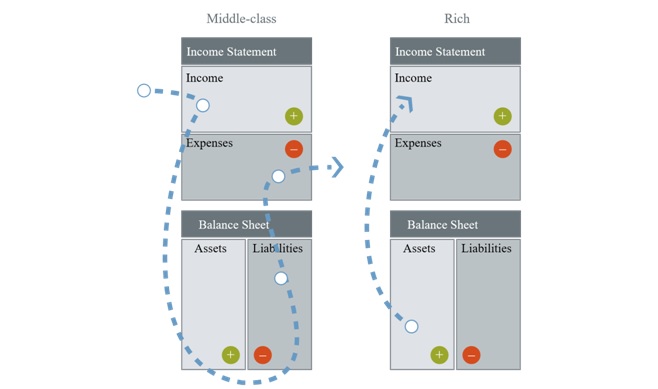What are Assets and Liabilities?
- September 17, 2019
- Posted by: abgaustralia83
- Category: Book Keeping Services

Understanding the true definition is the key to getting rich
A lot of people come to me asking how they can get rich quick. That is the one question that disturbs me the most because it’s the wrong question. It tells me that they don’t have the foundation of financial intelligence required to use their money well if they get rich.
This is because most people don’t understand that, when it comes to being rich, it’s not about how much money you make. It’s about how much money you keep.
Want to be rich? It’s about assets vs. liabilities
My school teacher always told me, “You need to read books.” My rich coach always told me, “You need to be financially literate.” I believe both were right. Books and learning are important, and so is a strong financial education. And if I had to choose one over the other, I’d choose financial education.
The importance of a firm, financial foundation makes sense when you think of construction. If you want to build the Empire State Building, the first thing you do is dig a deep hole and pour a strong foundation. If you want to build a McMansion in the suburbs, you pour a six-inch slab.
The problem with most people who want to get rich quick is that they’re trying to build the Empire State Building on a six-inch slab of concrete. They haven’t gone deep. They don’t have a firm, financial education to shore up their financial foundation. Thankfully, my rich coach took the time to teach me about money and poured a strong, financial foundation for my life.
And the number one rule he taught me was: “You must learn the difference between an asset and a liability—and buy assets.”
It’s so simple a rule that it’s almost anti-climactic. But, if you want to be rich, this is all you need to know. It’s rule number one. It’s the only rule.
The reality is that most people struggle financially because they don’t know the difference between an asset and a liability. Partly, this is because schools don’t teach people what an asset and a liability is. And partly, this is because those who do learn the concepts learn them from accountants who make them much too complicated.
My rich coach gave me a very simple definition of an asset and a liability.
What is an asset?
The simple definition of an asset is something that puts money in your pocket. Many so-called experts on money and accountants will have a much different definition that involves complex mathematics, but the reality is that unless something is putting money in your pocket, it’s not an asset.
There are many things that can be considered assets. These include things like investment real estate, a business, products like books or art, or the dividends from stock and bond investments.
Rich people focus on building their assets.
What is a liability?
The simple definition of a liability is something that takes money out of your pocket. Common liabilities include things like cars, vacations, clothes, eating out, unused subscriptions, and more.
If you look at the budget of a poor person, you’ll see that it is full of liabilities and has no assets.
The interesting thing is that there are some things that people mistake as assets that are really liabilities. This is because they don’t have high financial intelligence and they take at face value the advice of so-called financial experts.
The difference between an asset and a liability
To illustrate this, let’s look at something most people view as an asset—their home. If you look a traditional balance sheet, your house will be listed in the asset column.
I’ve stirred controversy by saying, “You house is not an asset.” In 2008, the start of the Great Recession, caused by massive defaults on sub-prime home loans, people weren’t laughing any more.
Why was this?
It was because they realized the hard truth that many things that are considered assets by accountants and finance people are really liabilities hiding behind smoke and mirrors.
Let’s revisit the Rich Coach simple definition of an asset and a liability: an asset is something that puts money in your pocket and a liability is something that takes money out of your pocket.
Using this simple and practical definition, your home is a liability because it takes money out of your pocket each month in the form of a mortgage, taxes, insurance, and maintenance costs. It does not put money in your pocket. Only if you’re able to sell it at a profit does it become an asset. Many people impacted by the Great Recession discovered that their house was a liability when they were foreclosed, sold on a short sale, or sold at a loss.
Conversely, a rental house can be an asset, if you do your due diligence correctly and are able to collect more rent than you have costs each month. The difference between the rent and the expenses is the net operating income, and it is cash flow that flows into your pockets each month. Therefore, it is an asset.
The rich don’t work for money
I find the difference between an asset and a liability is best understood by looking at the following pictures.

Very simply, the rich don’t work for money in the form of income like employees do. Rather, the rich invest their money in assets that put more money in their pockets, such as real estate, stocks, bonds, notes, and intellectual property.
The middle class and poor work for money and employees and invest their money in liabilities that take money out of their pockets such as mortgages, consumer loans, and credit card debt.
If you want to be rich, I encourage you to begin investing in your financial education today. And your first assignment is to begin studying the differences between assets and liabilities.
By building this firm foundation, you’ll understand more about money than 99% of the world and be on your way to not just getting rich and making money but keeping it too.

